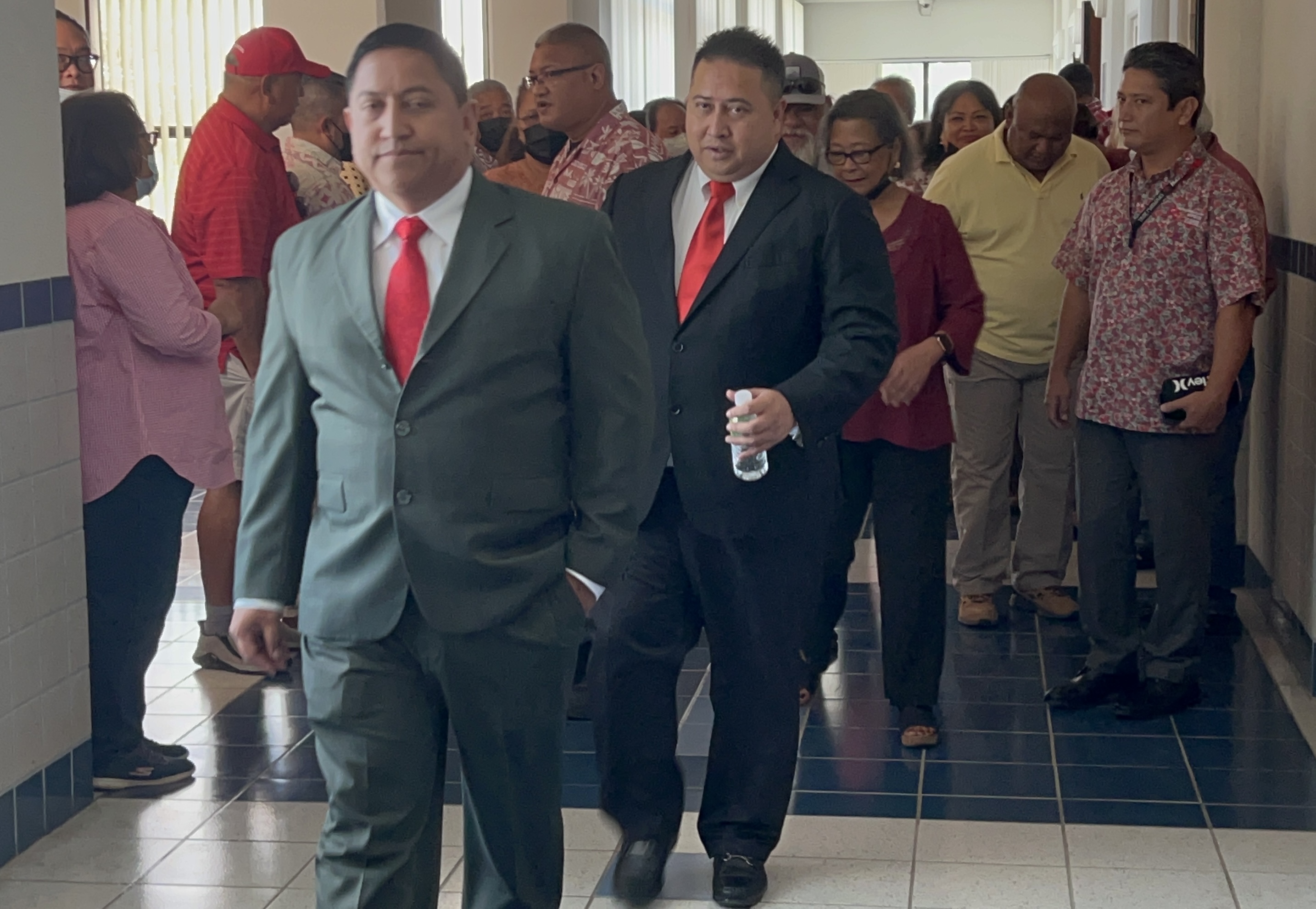Court grants stay in Torres case
In an order from judge pro tem Arthur R. Barcinas last Tuesday, the NMI Superior Court granted a stay in the case proceedings against former governor Ralph DLG Torres, bringing the case on temporary hold while an appeal is made to the NMI Supreme Court.
The stay comes after the court’s disqualification of the Office of the Attorney General raised significant constitutional questions, particularly over the separation of powers between the executive and judicial branches.
On Oct. 7, 2024, Barcinas, in a virtual hearing, took the Commonwealth’s motion under advisement, ultimately ruling in their favor. The Commonwealth, represented by chief solicitor J. Robert Glass Jr., argued that disqualifying the OAG from the prosecution impermissibly hindered the attorney general’s constitutional authority to prosecute cases on behalf of the Commonwealth.
The disqualification stemmed from a July 16, 2024 decision to remove the OAG and special prosecutor from the case. The Commonwealth quickly filed an appeal and, in September 2024, sought to pause all proceedings while the Supreme Court deliberates on the matter. Torres’ defense team, led by attorney Anthony Aguon, objected, citing a lack of jurisdiction for an appeal of this nature.
Separation of powers at issue
Central to the Commonwealth’s argument is the concern that removing the OAG from the case intrudes on the authority of the Executive Branch, particularly the prosecutorial powers of the Office of Attorney General. Glass said that the Commonwealth is facing irreparable harm and that the court’s disqualification order stands without Supreme Court review, the prosecutorial power enshrined in the CNMI Constitution will be severely undermined.
In response, Torres’ defense maintained that the court’s disqualification order is not subject to appeal, arguing that Commonwealth law prohibits interlocutory appeals in these circumstances. Aguon contended that the Office of Attorney General, despite being an elected position since a 2018 constitutional amendment, did not gain new powers that would justify a stay. He further asserted that the case should proceed without delay.
In a detailed ruling, issued Tuesday, Barcinas weighed both the potential harm to the Commonwealth and the impact on Torres. In the order he stated that while the court found that the OAG’s removal from the case raised serious constitutional issues, it also noted that the Office of the Public Auditor could take over the prosecution if necessary.
Barcinas ruled that the Commonwealth had met the threshold for granting a stay, noting that proceeding without addressing the separation of powers concerns could lead to irreparable harm. He emphasized that allowing the case to move forward before resolving these questions could jeopardize the Commonwealth’s ability to fully prosecute Torres.
“If the trial were to go forward and a jury were to find defendant not guilty, there would be no way for the Commonwealth to remedy the final decision. Because such an outcome would effectively remove the Commonwealth’s ability to seek a conclusive resolution of this issue, the court finds that the potential harm would be irreparable,” Barcinas wrote in his decision.
Defendant’s opposition and court’s decision
Although Torres is not currently incarcerated, his defense team opposed any delay, arguing that the Supreme Court has no jurisdiction to hear the Commonwealth’s appeal. They pointed to previous case law that prohibits such appeals, claiming the disqualification order is not appealable and therefore cannot justify a stay.
Despite this, the court found that delaying the case would not cause undue harm to Torres.
“In light of these circumstances, granting the Commonwealth’s stay would allow the NMI Supreme Court to address this issue without significantly prejudicing the defendant,” said Barcinas. Notably, Aguon had no objections to postponing certain hearings. The Commonwealth, meanwhile, committed to seeking expedited review from the Supreme Court, which could minimize delays.
In granting the stay, Barcinas concluded, “… because the court finds the Commonwealth’s argument sufficient to satisfy the first prong of the test, the court grants the Commonwealth’s motion to stay. To the extent that the disqualification of the OAG raises important questions about the separation of powers, the court finds that those questions should be resolved by the NMI Supreme Court before further proceedings in this case.”
The stay halts the trial until the Supreme Court reviews the appeal, a process that could take some time, depending on how quickly the case moves through the courts.

Former governor Ralph DLG Torres Torres is seen here in a file photo during an appearance in Superior Court.
-KIMBERLY B. ESMORES

Arthur Barcinas






